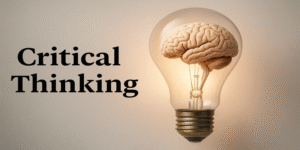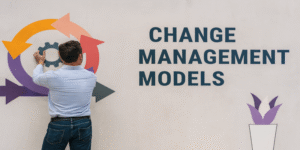Interviews are a critical component of the recruitment process, serving as a structured platform for both employers and candidates to assess mutual compatibility. According to Hartwell, Johnson and Posthuma (2019), the effectiveness of an interview largely depends on the quality of questions asked and the relevance and clarity of the candidate’s responses. The most successful candidates are those who respond thoughtfully, demonstrate self-awareness, and provide evidence-based examples. This article explores common interview questions and provides academic and practical insights into how best to answer them.
1.0 Tell Me About Yourself
Perhaps the most common opening question, “Tell me about yourself,” sets the tone for the rest of the interview. While deceptively simple, this question allows interviewers to gauge communication skills, confidence, and self-awareness (Lees, 2012).
A strong response should focus on professional identity, career achievements, and motivations rather than purely personal details. According to Yate (2008), an effective structure includes a brief summary of one’s career trajectory, key accomplishments, and career goals aligned with the position.
Example Answer:
“I’m a marketing professional with five years’ experience in digital campaign management. I’m particularly passionate about data-driven strategy and have successfully led campaigns that increased online engagement by 30%. Outside of work, I enjoy public speaking and mentoring new graduates.”
This type of answer is concise, relevant, and forward-looking, linking past experiences with the role applied for.
2.0 Tell Me About Your Hobbies and Interests
Although not directly job-related, this question helps interviewers assess your personality and cultural fit. According to Paulhus, Westlake and Calvez (2013), employers increasingly use such questions to evaluate interpersonal compatibility and work–life balance.
Example Answer:
“I’m passionate about running and have completed several half-marathons, which helps me maintain focus and discipline. I also enjoy photography — it’s taught me patience and attention to detail. I find that having creative hobbies enhances my problem-solving abilities at work.”
Candidates should select hobbies that reflect positive traits such as teamwork, dedication, or creativity, avoiding overly controversial or unrelated activities.
3.0 What Are Your Strengths?
Employers ask this question to determine what unique value the candidate can bring to the organisation. Research by Speer and Tenbrink (2020) suggests that well-articulated answers emphasising specific competencies are more persuasive than vague or generalised responses.
Candidates should focus on core professional strengths and provide examples of how these have been applied successfully in real scenarios. The STAR method (Situation, Task, Action, Result) is an effective framework for structuring such examples (Pulakos & Schmitt, 1995).
Example Answer:
“One of my key strengths is analytical thinking. In my previous role, I identified inefficiencies in our reporting process, streamlined data collection, and reduced processing time by 20%. I also have strong interpersonal skills, which help me collaborate effectively across teams.”
This answer combines measurable achievements with soft skills, demonstrating both capability and versatility.
4.0 What Are Your Weaknesses?
The “weakness” question assesses a candidate’s self-awareness and willingness to improve. As Brosy, Bangerter and Mayor (2016) note, effective responses avoid clichés such as “I work too hard” and instead focus on genuine but manageable areas for development.
Example Answer:
“I’ve found that I can sometimes spend too much time perfecting presentations. However, I’ve been improving by setting clearer time limits and focusing on content impact rather than design perfection.”
The key is to show growth orientation — acknowledging the weakness while demonstrating proactive improvement. This reflects emotional intelligence and personal accountability (Maftei, 2019).
5.0 Why Do You Want to Work for This Company?
This question evaluates motivation, cultural fit, and research effort. According to Corfield (2009), recruiters seek candidates who align with the company’s mission, values, and strategic direction.
Example Answer:
“I admire your company’s commitment to sustainability and innovation, particularly your recent initiative to achieve net-zero emissions. My background in environmental policy and stakeholder engagement aligns closely with this mission, and I’m eager to contribute to these ongoing efforts.”
Answers like this demonstrate knowledge of the company and personal alignment with its purpose. A survey by the CIPD (2024) found that 67% of hiring managers prioritise candidates who express genuine enthusiasm for organisational values.
6.0 What Is the Biggest Mistake You Have Made and What Have You Learned from It?
This question examines self-reflection and resilience. As argued by Fletcher (1992), employers value candidates who can recognise errors, take responsibility, and demonstrate learning agility.
Example Answer:
“Early in my career, I underestimated the time required for a major project and failed to delegate effectively. As a result, we missed a key internal deadline. I learned to plan more carefully, communicate expectations clearly, and build contingency time into my schedules. Since then, I’ve successfully delivered multiple complex projects on time.”
The best answers turn mistakes into learning opportunities, highlighting growth rather than failure.
7.0 Describe a Challenge You Have Faced and How You Dealt with It
Behavioural questions like this are designed to evaluate problem-solving ability, resilience, and teamwork. Taylor and Small’s (2002) meta-analysis confirmed that past behaviour predicts future performance, making these questions central to structured interviews.
Example Answer:
“In my previous role as a project coordinator, a key supplier failed to deliver materials on time, threatening a major deadline. I organised a crisis meeting, renegotiated delivery terms, and reassigned internal resources to minimise impact. The project was completed on schedule, and the experience improved my crisis management skills.”
This example demonstrates initiative and adaptability while maintaining focus on outcomes and learning.
8.0 Where Do You See Yourself in Five Years?
This question tests ambition, planning, and career alignment. According to Fry (2018), interviewers want to ensure that candidates’ goals align with organisational opportunities.
Example Answer:
“In five years, I see myself progressing to a senior management role where I can contribute to strategic decision-making. I’m particularly interested in developing my leadership and analytical skills to support the company’s growth initiatives.”
Such a response balances aspiration with realism, showing a commitment to professional development within the organisation.
9.0 Why Did You Leave Your Last Job?
This question assesses career motivation and integrity. Candidates should avoid negativity about previous employers and instead emphasise career progression or alignment with new goals (Podmoroff, 2005).
Example Answer:
“I enjoyed my previous role but felt ready for new challenges and greater responsibility. I’m seeking an organisation that values innovation and offers opportunities to make a broader impact.”
Framing the response positively signals maturity and forward-thinking (Akhtar, 2012).
10.0 Tell Me About a Time You Demonstrated Leadership
Employers use this question to evaluate influence, decision-making, and team motivation. As Payakkapet and Yordchim (2025) found, situational and behavioural leadership examples significantly affect interview outcomes.
Example Answer:
“As part of a university sustainability project, I led a team of eight students to develop a recycling initiative across campus. I delegated tasks based on strengths, facilitated weekly progress reviews, and secured funding through a student grant. The project reduced waste by 25% and was adopted by the university’s facilities department.”
This response provides evidence of leadership qualities—planning, communication, and measurable results—essential traits for managerial roles.
11.0 How Do You Handle Conflict at Work?
Conflict management questions aim to reveal emotional regulation, communication skills, and professionalism. Research by Conway and Peneno (1999) shows that structured interviewers evaluate these responses based on the candidate’s approach to resolving interpersonal tensions constructively.
Example Answer:
“In a past project, two colleagues disagreed on task priorities. I facilitated a meeting to ensure each person’s viewpoint was heard and worked with them to realign the timeline. This open discussion improved collaboration and the project’s overall success.”
Employers value candidates who turn conflict into collaboration opportunities, demonstrating maturity and diplomacy.
12.0 Why Do You Think You Could Do the Job?
This question is an invitation to summarise your skills, experience, and motivation. Candidates should connect their background directly to the role requirements (Corfield, 2009).
Example Answer:
“I believe I could excel in this role because I have over five years of experience managing client portfolios, combined with strong analytical and communication skills. I’ve successfully delivered data-driven solutions that improved customer satisfaction by 20%. My proactive approach and adaptability align closely with your company’s client-focused ethos.”
This answer focuses on relevance and value addition, demonstrating that the candidate understands both the job and the employer’s expectations.
13.0 Do You Have Any Questions for Us?
This is often the final question and an opportunity to demonstrate engagement and curiosity. Onwuegbuzie and Hwang (2014) emphasise that well-prepared candidates use this moment to reinforce their interest and gather essential insights about the organisation.
Example Questions:
- “What qualities do successful employees in this role typically share?”
- “How does the organisation support professional development?”
- “What are the company’s goals for the next year, and how could this role contribute to achieving them?”
Avoid questions about salary or benefits at this stage unless initiated by the interviewer. Intelligent questions signal strategic thinking and genuine enthusiasm.
Interview questions are designed not only to evaluate skills and experience but also to uncover personality, motivation, and alignment with organisational culture. Effective answers are authentic, specific, and supported by examples demonstrating competence and growth.
As Fry (2018) and Lees (2012) argue, interview success depends less on memorising responses and more on understanding the purpose behind each question—to reveal one’s ability, mindset, and professional fit. Candidates who prepare by reflecting on their experiences, researching the company, and practising concise storytelling stand the best chance of success.
Ultimately, mastering common interview questions is not about performing rehearsed scripts but about communicating genuine confidence, clarity, and character.
References
Akhtar, S. (2012) What to Expect from Across the Table: 25 Most Frequently Asked General Interview Questions. IUP Journal of Soft Skills, 6(3), pp. 15–29.
Brosy, J., Bangerter, A. and Mayor, E. (2016) ‘Disfluent responses to job interview questions and what they entail’, Discourse Processes, 53(8), pp. 622–643.
Conway, J.M. and Peneno, G.M. (1999) ‘Comparing structured interview question types: Construct validity and applicant reactions’, Journal of Business and Psychology, 13(4), pp. 485–506.
Corfield, R. (2009) Successful Interview Skills: How to Prepare, Answer Tough Questions and Get Your Ideal Job. London: Kogan Page.
CIPD (2024) Recruitment and Selection Factsheet. London: Chartered Institute of Personnel and Development.
Fry, R. (2018) 101 Great Answers to the Toughest Interview Questions. New York: Open Road Media.
Hartwell, C.J., Johnson, C.D. and Posthuma, R.A. (2019) ‘Are we asking the right questions? Predictive validity comparison of four structured interview question types’, Journal of Business Research, 98, pp. 217–228.
Lees, J. (2012) Job Interviews: Top Answers to Tough Questions. London: McGraw-Hill.
Maftei, C. (2019) ‘Developing interview skills in English: How to handle interview questions’, Scientific Conference on Social Sciences and Arts, 6(1), pp. 117–125.
Payakkapet, S. and Yordchim, S. (2025) ‘Classifying job interview questions based on multifunctional purposes’, International Conference on Business and Technology Studies (ICBTS Beijing 2025), pp. 45–56.
Paulhus, D.L., Westlake, B.G. & Calvez, S.S. (2013) ‘Self‐presentation style in job interviews: The role of personality and culture’, Journal of Applied Social Psychology, 43(10), pp. 2042–2059.
Podmoroff, D. (2005) 501+ Great Interview Questions for Employers and the Best Answers for Prospective Employees. Florida: Atlantic Publishing Group.
Pulakos, E.D. and Schmitt, N. (1995) ‘Experience-based and situational interview questions: Studies of validity’, Personnel Psychology, 48(2), pp. 289–308.
Speer, A.B. and Tenbrink, A.P. (2020) ‘Individual differences in effective interview design: Factors affecting question choice’, International Journal of Selection and Assessment, 28(4), pp. 412–425.
Taylor, P.J. and Small, B. (2002) ‘Asking applicants what they would do versus what they did do: A meta-analytic comparison’, Journal of Occupational and Organisational Psychology, 75(3), pp. 277–294.
Yate, M.J. (2008) Great Answers to Tough Interview Questions. London: Kogan Page.









